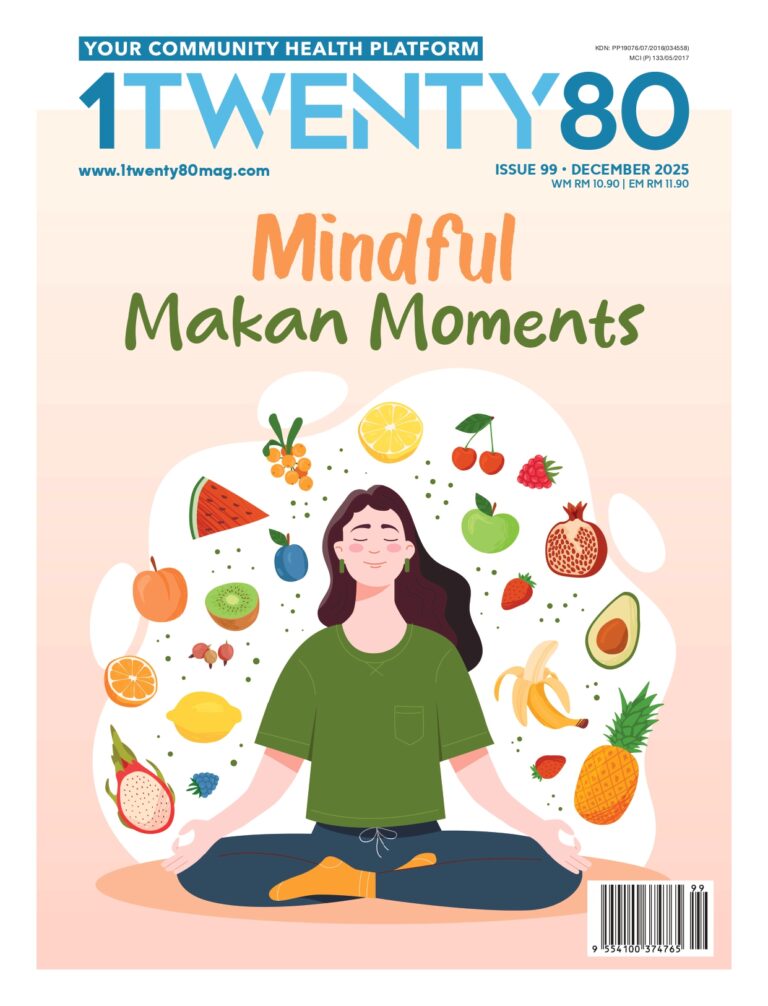Once you put your rubbish in the bin or pour it down the drain, there’s no need to worry about it, right?
Wrong.
Some forms of rubbish shouldn’t be binned and certain liquids can’t be poured down the drain. How many of us are guilty of pouring cooking grease down the drain and then complaining about the sink overflowing due to clogs? Now that we’ve got you thinking, the next question should be how should I manage my home’s waste?
Other than the ways that you dispose of your household’s garbage, it’s best to also consider minimising the amount of waste generated. Putting more thought into how you manage your household’s waste could help you save money and also lessen your carbon footprint!
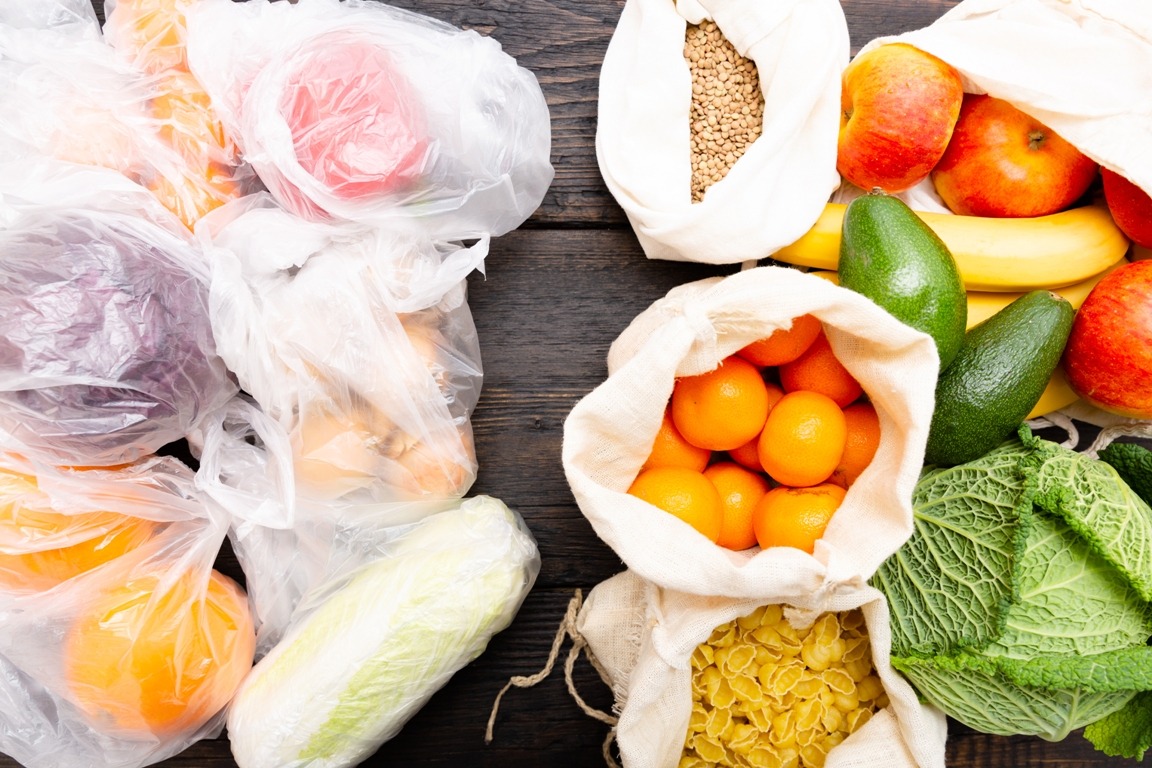
Say no to one-use plastic
Instead of a one-use plastic bag that may end up choking marine life, why not opt for a reusable tote? In addition to being reusable, some totes, especially ones that are made from cotton are washable which will help keep your shopping clean. If you find yourself forgetting to bring your tote with you when you shop for groceries, leave a bag or two in your car and you’ll be able to reduce the use of one-use plastic.
Another form of one-use plastic is in the form of bottled water. Living in the city means having access to safe water sources so it’s easy to stay hydrated with a reusable water bottle. In some countries, it is perfectly fine to drink straight from the tap but if you’re apprehensive, simply boil the water and wait for it to cool before drinking.
In addition to drinking water, one-use plastic bottles also includes fizzy drinks and juices. To lessen your use of one-use plastic, avoid buying these types of drinks which also lessens your intake of added sugars! Do keep in mind that if you’re travelling somewhere that has questionable hygiene and water safety, bottled water is perfectly fine to prevent any water-borne diseases.
Quote: “Putting more thought into how you manage your household’s waste could help you save money and also lessen your carbon footprint!”
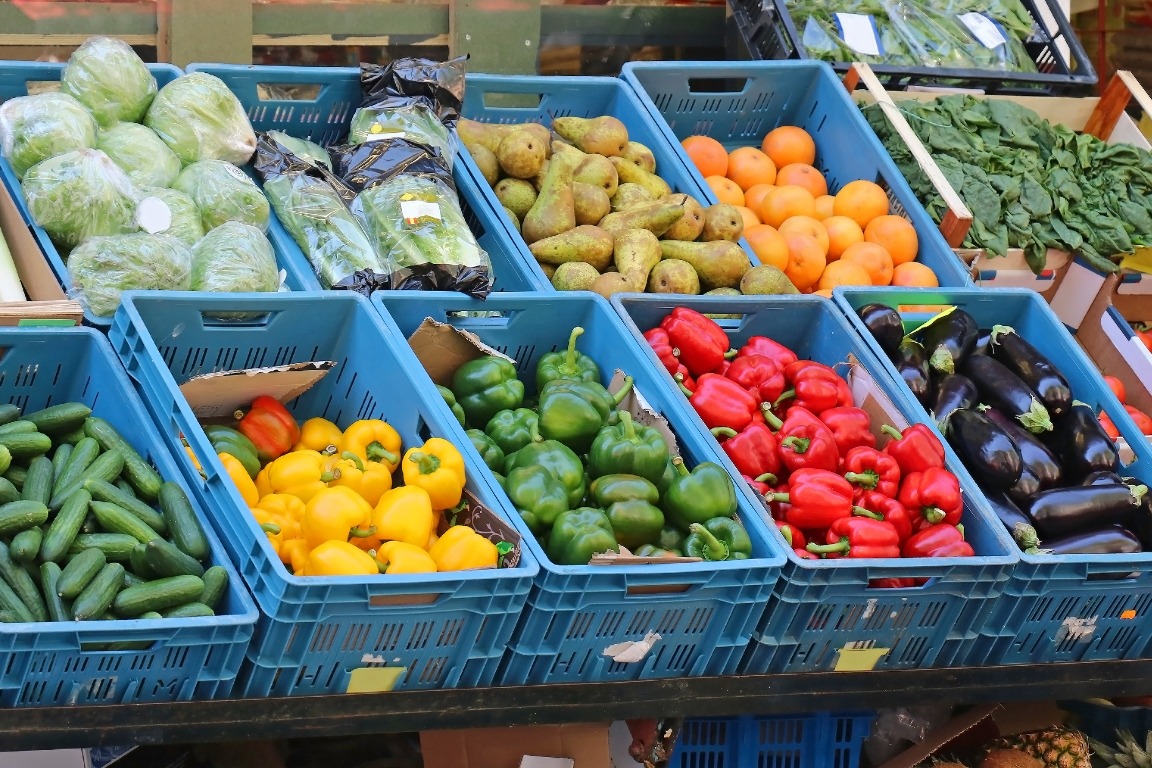
Say no to packaging
Ever realise how fruits and vegetables in supermarkets are packaged individually? The plastic packaging covering the produce will inevitably end up in the landfill after serving its purpose. Shop in grocery stores that do not use this type of packaging where fruits and vegetables are sold loose or patronise the nearest wet or farmer’s market. Paper bags from clothing stores are a great way to transport fruits and vegetables while reusable plastic containers will do well with meats from the butcher.
If you’re too busy to patronise the wet market for groceries, PasarTap, Malaysia’s first online wet market, is here to help. Just click on the items you’d like to purchase at the wet market and PasarTap’s employees will choose the best and freshest produce that ranges from fresh meat to sundry goods, make payment and your groceries be delivered to your doorstep. In addition to less packaging, buying local means supporting local sellers and not imported goods that need to be flown in, thereby minimising your carbon footprint.
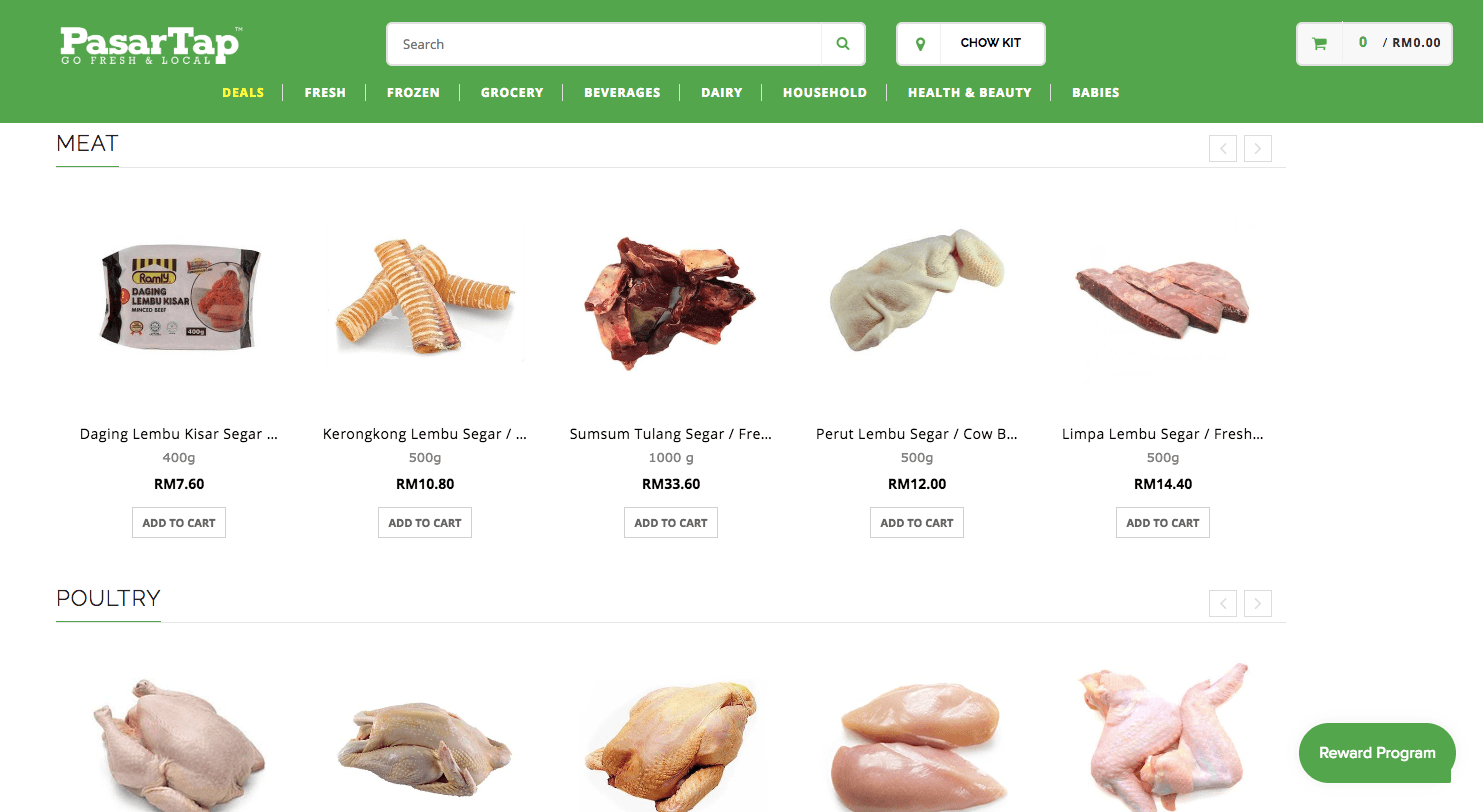
Image courtesy of pasartap.com
Find them at www.pasartap.com or follow them on Facebook (www.facebook.com/ pasartap) and Instagram (@pasartap).
Other initiatives such as sundry shops where you must bring your own packaging have popped up in the Klang Valley such as A Bit Less Bulk Store located in Kepong. This store aims to eliminate single-use plastic packaging by getting their shoppers to bring their own packaging such as glass jars or plastic containers that they have at home. They also host workshops where they teach how to lead a zero waste life and how to make items like beeswax wrap to replace single-use cellophane cling wrap.
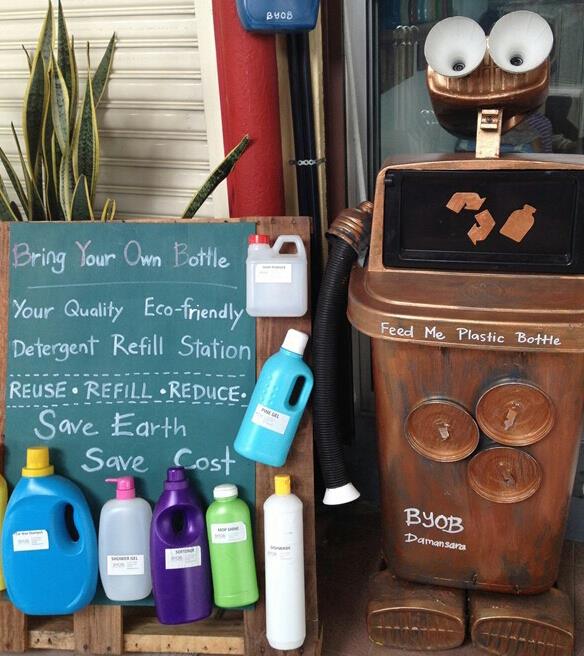
Image courtesy of BYOB Damansara Kim Facebook
Find them at 20, Jalan Ambong 4, Kepong Baru 52100 Kuala Lumpur, Malaysia or follow them on Facebook for updates at www.facebook.com/ abitlessbulkstore.
BYOB (Bring Your Own Bottle) Damansara Kim is also another store which encourages its shoppers to reuse their existing plastic bottles but their specialty is eco-friendly cleaning products such as detergents and degreasers. Their policy is for shoppers to bring their own clean and used plastic bottles to refill the detergent of choice in order to reduce the amount of plastic going into landfills. Do note that glass bottles are not suitable because after filling with detergent, they may break due to weight. BYOB Damansara Kim charges only for how much detergent you buy minus the weight of your plastic bottle.
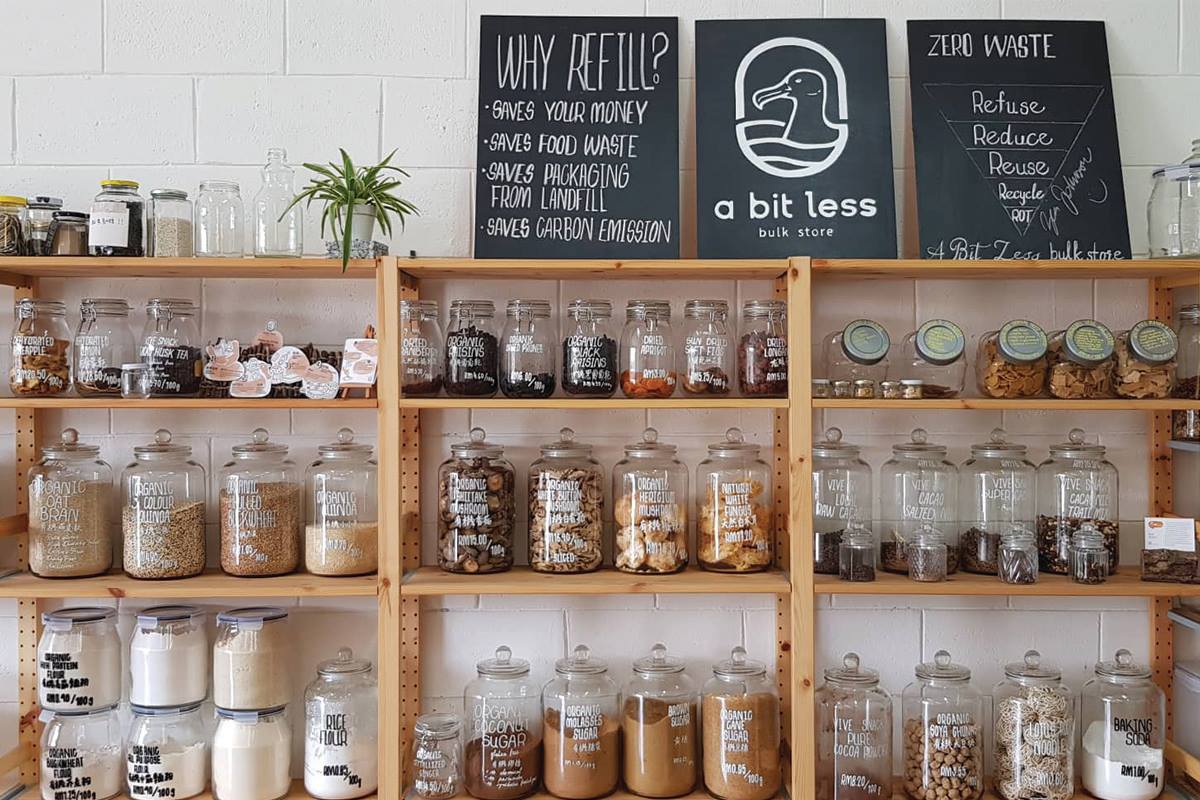
Image courtesy of A Bit Less Bulk Store Facebook
Find them at 15, SS20/11, Damansara Kim, Petaling Jaya, Malaysia or follow them on Facebook at www. facebook.com/BYOBDamansaraKim for updates and other guidelines for buying their wares.










